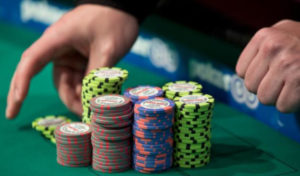On Wednesday, May 1, authorities in Houston, Texas came down hard on two poker rooms and arrested at least nine people during a raid that went down that afternoon. Severin Rasset, PokerStars’ Director of Poker Innovation and Operations, the two poker rooms, had been masquerading as “card clubs” in order to skirt state laws pertaining to gaming. Consequently, every other card club in the areas has been shut down due to concerns about the future of Texas card clubs going forward.
During the Wednesday raid, Dean Maddox, the owner of Prime Social Poker Club; Brent Pollack, the club’s general manager; assistant GM Steven Farshid; and comptroller Mary Switzer, were led out in handcuffs just before they were reportedly about to kick off a five-day, $150,000 guaranteed tournament at the establishment. As for the Post Oak Poker Club, the people who arrested in connection with its illegal operations were Daniel Kebort, Alan Chodrow, Kevin Chodrow, Sergio Cabrera, and William Heuer. All of them are now facing charges for engaging in organized criminal activity, the promotion of gambling activities as well as money laundering, all of which are very serious state and federal offenses.
As it turns out, the raids were the results of an investigation that spanned over two years with undercover law enforcement officers posing as poker players in order to get wind of what was going on. These undercover police officers reportedly had to pay “membership fees, a door fee, and a fee to play at a poker table”.
The State of Poker in Texas
Poker rooms in Texas have operated in a legal grey area for a very long time – the activity is largely carried out in the same fashion as a country club on a membership model. That is, the players only need to pay a fee to participate in the games. The club is not allowed to take a rake and therefore it makes money either through membership or timely fees.
“Poker rooms are illegal in Texas. We are changing the paradigm regarding illegal gambling by moving up the criminal chain and pursuing felony money laundering and engaging in organized crime charges against owners and operators,” District Attorney Kim Ogg said in a written statement.
The above statement holds true for most cases where people may indulge in poker gaming. However, to put everything int perspective, poker is actually allowed in Texas but the following rules have to be adhered to:
- No person received economic benefits other than personal winnings.
- Gambling must be in a private place.
- Except for the advantage of skill or luck, the risks of losing and the chances of winning were the same for all participants.
Unfortunately, there has been a rapid increase in the number of poker rooms in the area and trouble eventually started brewing in the form of a high-profile shooting and some lawsuits. This was definitely bound to catch the attention of the authorities.







